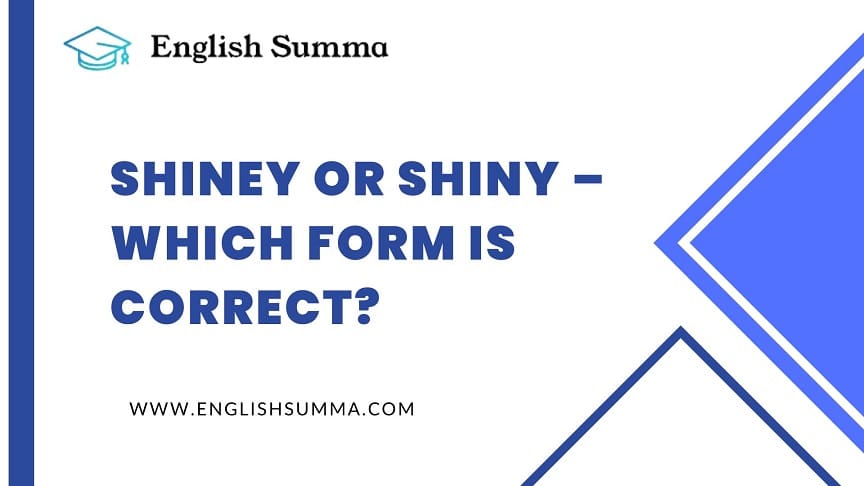When it comes to the words shiney or shiny, many writers struggle to determine which spelling is the correct form. This confusion is understandable, as these two terms seem quite similar. However, there is an important distinction. This article will examine the accurate spelling, definitions, and proper usage of “shiney” versus “shiny” to clarify the correct form.
Key Takeaways
In conclusion, the key facts to remember when choosing between “shiney” and “shiny” are:
- Shiney is not a real word; the accurate spelling is “shiny”.
- “Shiny” means lustrous, glossy, bright, and gleaming.
- Common reasons for confusion include connections to “shine”, similar words ending in “-ey”, incorrect examples using “shiney”, and indistinct spoken English.
- When used as an adjective for qualities like reflective, lustrous, or gleaming, the proper spelling is always “shiny”.
Shiney or Shiny: Defining the Key Difference
Shiney is not an actual word in the English language. The proper spelling is “shiny”. This is an important fact to keep in mind when determining which form is accurate. “Shiny” is an adjective used to describe something that reflects light, is lustrous, bright, and gleaming. For example:
- Her new shoes were shiny black leather.
- The shiny blue car shone brightly under the sun.
- He polished his shoes until they were shiny.
Read this article if you are confused about using Quite or Quiet
Reasons for the “Shiny” and “Shiney” Confusion
There are a few key reasons why people sometimes use “shiney” incorrectly instead of the accurate “shiny” spelling:
1. Assumed Connection to the Verb “To Shine”
The verb “to shine” is spelled with an “e”. For example:
- The sun shone brightly in the clear sky.
- She shined a flashlight into the dark cave.
So some writers assume “shiney” is the accurate adjective form. However, this is incorrect. The verb “to shine” does not convert to “shiney”. The accurate adjective is “shiny”, without the “e”.
Is it Atleast or At Least? Learn here.
2. Confusion with Similar Adjectives
There are some similar adjectives that end in “-ey”, such as “cloudy” and “rainy”. So it can be tempting to assume “shiney” fits this pattern. However, this assumption leads to an inaccurate spelling. The proper form remains “shiny”.
3. Incorrect Examples and Misspellings
Unfortunately, the term “shiney” is sometimes used incorrectly as an example sentence in dictionaries and other resources. These misspellings and inaccurate demonstrations propagate the mistake. Always double check spelling of unfamiliar words in multiple reputable sources.
4. Uncertainty in Spoken English
When “shiny” is spoken aloud, the “-y” ending can be difficult to distinguish clearly. The “-ey” and “-y” endings can sound quite similar when spoken. So writers may rely on the wrong spelling when converting spoken to written English.
Learn what is correct Wheelbarrow or Wheelbarrel
Correct Usage of “Shiny”
Now that the key differences between “shiny” and “shiney” have been clarified, it is important to ensure proper usage of the “shiny” spelling as an adjective. Here are some examples of correct usage:
- Her shiny new smartphone gleamed under the bright lights of the store.
- The dog’s shiny fur glistened after the bath.
- I waxed the floors until they were shiny and immaculate.
- The child gazed in wonder at the shiny, gleaming ornaments on the Christmas tree.
In these examples, “shiny” is used correctly as an adjective to describe a lustrous, bright, polished, or reflective quality. This demonstrates proper spelling and usage.
Conclusion
So in a nutshell, “shiny” is the singular proper spelling and form when you want to describe something that gleams brightly like a shiny new penny! Meanwhile, “shiney” is simply an error. I hope this breakdown helps clarify the correct spelling and usage of these two terms. Let your writing shine with the proper “shiny” form!

